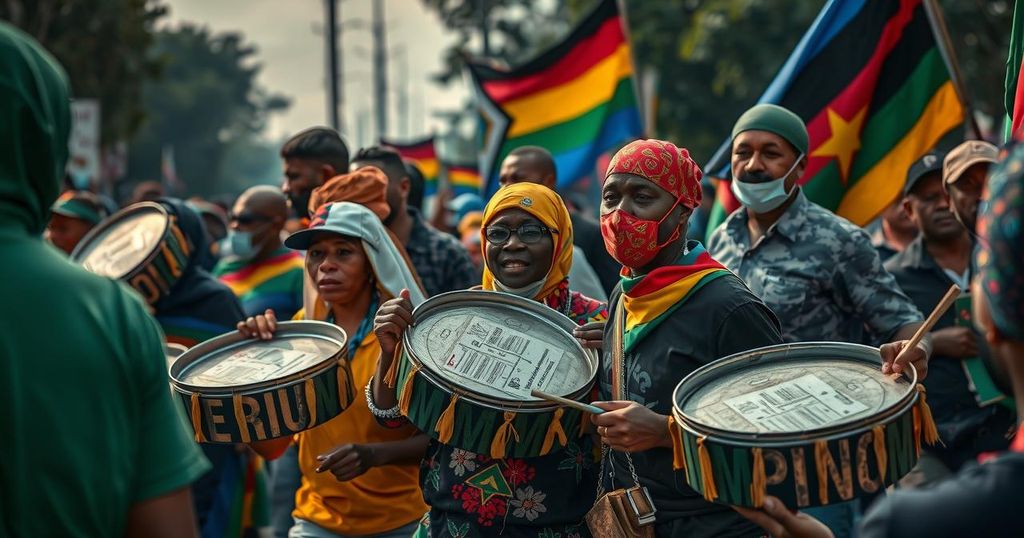Protests in Mozambique have intensified following October’s disputed elections, where citizens express dissent by banging pots and pans. The civil unrest, sparked by claims of electoral fraud and government oppression, has seen significant economic ramifications and violent clashes. Opposition leader Venancio Mondlane has mobilized a growing movement that challenges the legitimacy of the ruling government and calls for structural change amid historical dissatisfaction with the political elite.
Maputo, Mozambique, has been engulfed in protests for over a month following the October 9 elections, characterized by a unique form of dissent known as “panelaco,” which involves citizens banging pots and pans to express their anger over disputed election results. Opposition leader Venancio Mondlane’s call for a nationwide shutdown underscored the public’s dissatisfaction with the ruling Front for the Liberation of Mozambique (Frelimo), whose presidential candidate, Daniel Chapo, was declared winner with 71 percent of votes from the National Election Commission, despite reported irregularities, including the assassination of Mondlane’s legal adviser. Protests have resulted in intense confrontations between demonstrators and police, leading to escalating violence and economic disruptions, with the police being criticized for excessive force. This climate of unrest not only reflects growing disenchantment with the government due to long-standing economic stagnation but also mirrors a historical narrative of resistance against oppressive governance.
The ongoing protests in Mozambique arise from widespread dissatisfaction with the integrity of the recent elections and a long history of economic challenges faced by citizens. Following the electoral victory of Frelimo candidate Daniel Chapo, many Mozambicans rallied behind opposition leader Venancio Mondlane, contesting the legitimacy of the election results. The subsequent civil unrest has seen a unique expression of dissent through pot-banging protests, a method that provides a shield against potential police violence. These socio-political tensions highlight a susceptibility to governmental oppression and civic mobilization across various demographics in Mozambique.
In summary, Mozambique’s protests signify deep-rooted societal frustrations regarding the electoral process and governance. The innovative protest method of “panelaco” conveys a powerful message of unity and dissent, showcasing the citizens’ demand for accountability and justice in the face of perceived electoral fraud. The government’s aggressive response further exacerbates public discontent, revealing a potential tipping point in Mozambique’s socio-political landscape where citizens increasingly reject oppressive measures and advocate for democratic reform.
Original Source: www.aljazeera.com






